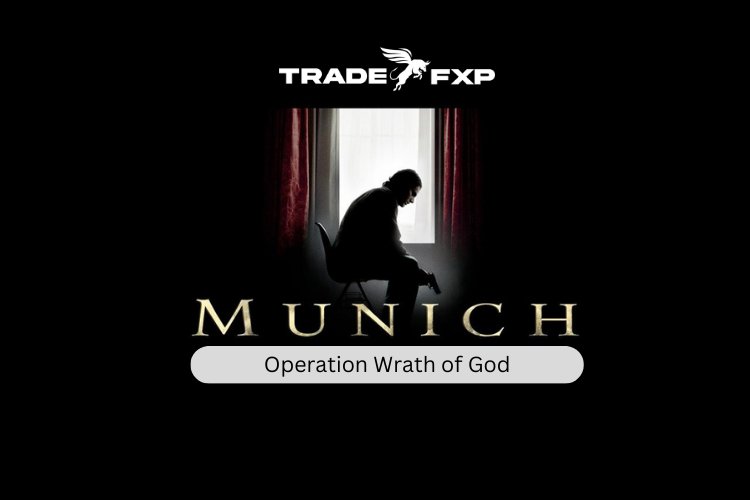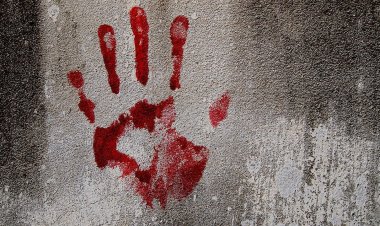The Munich Olympic Massacre and Operation Wrath of God: A Defining Chapter in Israeli History
An in-depth analysis of the Munich Olympic Massacre in 1972 and the consequential Operation Wrath of God led by Israel's intelligence agency, Mossad. The blog post explores the events, their global impact, and the controversial aftermath.

The Munich Olympic Massacre and Operation Wrath of God: A Defining Chapter in Israeli History
The 1972 Munich Olympic Massacre: A Dark Day in Israeli History
The 1972 Olympics in Munich were a big deal for Israel. It was the first time since World War II that Israeli athletes got to compete in Germany. But things took a really dark turn that Israel will never forget.
On September 5th, some Palestinian terrorists called Black September broke into where the Israeli team was staying in the Olympic Village. They took some of the athletes hostage and said Israel had to release some Palestinian prisoners they were holding, and the Germans tried talking to the terrorists to get them to stop, but it didn't work.
The whole world watched in horror as this hostage thing played out. Things got even more tense when the terrorists took the hostages to a nearby airport. When German security forces tried to rescue them, it was a total disaster—all of the Israeli athletes died along with one German cop and some of the terrorists.
What happened at the Munich Olympics was a huge shock everywhere. It totally ruined the spirit of unity and peace that the Olympics are supposed to represent. Israel and the rest of the world were really scarred by the loss of innocent lives and the attack on Israeli athletes.
The Munich tragedy made the Israeli government and people demand justice and payback for the awful crime against their athletes on foreign soil. What happened after the massacre changed how countries handled international intelligence and security stuff.
The massacre of Israeli athletes at the 1972 Munich Olympics was a turning point for Israel. It led to the launch of Operation Wrath of God, which was Israel's campaign for revenge against those responsible.
After Munich, Israel was overwhelmed by grief and outrage over the loss of the athletes. Prime Minister Golda Meir recognized the need for justice and authorized Mossad, Israel's intelligence agency, to get revenge on the attackers.
Mossad launched Operation Wrath of God to bring the perpetrators to justice and send a message that Israel would not tolerate terrorist attacks on its people. Known for their expertise in covert ops, Mossad planned assassinations against members of Black September and others tied to the Munich massacre.
Mossad agents went on a worldwide mission, gathering intelligence and making a hit list with around 30 names—people involved in planning and carrying out Munich. Their goal was to find these people and make sure they could never threaten Israeli lives again.
Operation Wrath of God was a carefully planned campaign. Mossad agents worked undercover, using aliases and disguises to infiltrate Palestinian groups and track down targets. This operation spanned several countries and used various tactics to eliminate the enemies and
The Munich Olympics massacre was a tragedy that demanded justice. Israel's spy agency, Mossad, launched Operation Wrath of God to get payback against the terrorists responsible. They used all kinds of techniques—car bombs, shootings, poison—to take out the targets. Nothing would stop them from avenging their people.
With the wrath of God, Israel sent a strong warning to terrorists everywhere: hurt our citizens, and we'll hunt you down. It showed their determination to defend themselves and strike back. But carrying out the mission wasn't straightforward or clean.
There were mix-ups and unintended deaths as Mossad agents pursued justice. The covert operations provoked backlash and criticism, even as they succeeded in their goals. Pursuing justice came at a moral cost.
Bringing the terrorists to account was complicated. Mossad tried eliminating the perpetrators through Operation Wrath of God. But hunting down and killing people secretly led to mistaken identities and accidental casualties. Justice after Munich came at a price.
The Mossad agents were driven by a deep feeling of payback and a desire to keep Israelis safe. They worked hard to get information on who they were after. But since it was secret work under pressure, mistakes happened. Innocent folks got unfairly caught up in it and hurt.
One big mistake was Ahmed Bouchiki. In Lillehammer, Norway, the Mossad thought he was Ali Hassan Salameh, aka the Red Prince, who they believed planned the Munich attack. Trying to get Salameh, they killed Bouchiki on July 21, 1973, but he was just an innocent Moroccan waiter, and the awful mistake showed how tough and risky these covert ops are.
Going after justice can bring unintended casualties, and Operation Wrath of God had some. The agents operated in other countries, sometimes putting innocent people in danger as they tried to take out their targets. These covert operations are inherently uncertain, so it's hard to know exactly how each mission will shake out.
Although the main goal for Mossad was to eliminate the Munich attackers, there was collateral damage in the hunt. Innocent people who were just in the wrong spot got caught up and hurt. These unintended victims made Operation Wrath of God more complicated and brought more scrutiny and criticism.
The unintended victims and cases of mistaken identity raised questions about Mossad's methods and accountability. Critics say the secret nature of the operations and lack of transparency set a dangerous example. The ethical issues surrounding targeted killings in other countries sparked intense debate in Israel and internationally.
Operation Wrath of God was successful in some ways but also brought tragedy. The mistakes and unmeant casualties caused controversy and raised important ethical questions about limits on national security operations and the pursuit of justice against terrorism.
Despite the challenges and unintended consequences, seeking justice for the Munich Olympics massacre remained a key goal for Israel. Mossad's determination to bring those responsible to justice would soon focus on one main target: Ali Hassan Salameh, the mysterious 'Red Prince.
Ali Hassan Salameh in the Crosshairs: The Red Prince
Ali Hassan Salameh, widely called the 'Red Prince,' was a key player in the Munich Olympics attack. Salameh, seen as one of the masterminds of the assault and founder of Black September, became a top target for Mossad as part of Operation Wrath of God, and although earlier attempts to capture or eliminate Salameh had failed, Mossad kept going after him. Salameh, known for avoiding capture through protection and constantly moving around, was a big challenge for the intelligence agency.
The Mossad spent a lot of time watching Salameh and figuring out where he went regularly so they could get him. They found out he liked to visit Beirut a lot, which made sense because it was his hometown, but it was also a crazy dangerous place politically.
In 1979, the Mossad saw their chance and planted a bomb in Beirut under the car Salameh used to get around in. On January 22nd, when he went to his car, the bomb went off and killed him right away.
Taking out Salameh like that was a big deal for Mossad because it showed they could get rid of high-priority targets even when it seemed impossible. But it also kept causing controversy because they committed an assassination in another country, which raised legal and ethical questions.
So, while killing Salameh helped Israel feel some justice for what happened at the Munich Olympics, it also ended that phase of Operation Wrath of God. They had taken down a really tough target, which proved how determined they were.
The Munich Olympics Massacre and Israel's search for justice afterward are definitely important parts of the country's history. The fallout from Operation Wrath of God still causes arguments about whether going after terrorists outside the law actually works or is moral.
When Operation Wrath of God wound down, the controversies about it were just starting up.
The aftermath of Operation Wrath of God was controversial.
Israel was thrilled when Operation Wrath of God took out key terrorists connected to the Munich attack. But the operation caused some international controversy and criticism too.
Other countries were worried about Israel sending Mossad agents into their territories to kill people, even if they were terrorists. They said it violated their sovereignty and wasn't lawful. Critics said Israel set a scary precedent where countries can just kill whoever they want without a trial, no matter how bad their crime was.
Human rights groups spoke out against the operation and said Israel should follow international law and pursue justice through the courts. They saw the targeted killings as violating individual rights, and they argued terrorism should be fought by countries working together under the law, not by one country taking matters into its own hands.
The unintended screw-ups and mix-ups during Operation Wrath of God also made people angry and gave the critics more ammo. When innocent folks got hurt and they went after the wrong guys, it made people wonder if Mossad's intelligence was any good. The operation showed how risky it is to do secret stuff in someone else's country.
There were also worries that Operation Wrath of God could start new cycles of violence and people getting even. Critics said the targeted killings would just help extremist groups recruit more people and lead to never-ending conflict and revenge.
The operation has also caused debate within Israel. While some supported Mossad's efforts to get justice and deter more terrorist attacks, others worried about how extrajudicial actions make the country look bad internationally and could lead to retaliation.
After Operation Wrath of God, Israel had to rethink its strategies to fight terrorism while following international law. The Munich Olympics attack and search for justice forced Israel to figure out how to fight terror while keeping its moral high ground and respecting other countries.
The debates around Operation Wrath of God will keep shaping how people talk about counterterrorism and using intelligence in the future. The Munich Olympics massacres really affected how Israelis see things and started bigger conversations about what governments can do and finding justice when terrorism happens. Operation Wrath of God might've met its goals right away, but the issues it brought up will echo long after it finishes. Going after justice and remembering the Munich Olympics massacre will always be a big part of Israeli history. It reminds everyone about how complicated and tough it is to fight terrorism.
Have fun trading!
Have a great journey, and may you catch some big waves on your way to prosperity!
To see this for real, click here.
https://www.myfxbook.com/members/SankarGanesan/tradefxp-trend-antitrend-day-trading/10404725
To read why you should be with us, click here
To open an account, click here.
To see our regulation certificate: click here.
To see our news with the IFMRRC: click here.
For claims, click here.
For the main site: click here.
For blogs and articles: click here.



 admin
admin 










